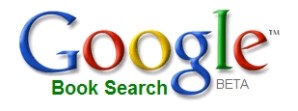
Internet giant Google has dreams of making millions of books available digitally through its scan-and-post Google Books project, but the plan has has been subjected to significant objections from publishers and other interested parties, who pointed out that Google would effectively have a monopoly over digital versions of many titles, and would effectively be misappropriating works where copyright holders are unknown or unreachable and profiting from copying and redistributing their content. After the first round of objections generated a class-action lawsuit, Google offered a class-action settlement deal with publishers, then revised that settlement proposal in an effort to make Google Books more palatable. And while a few publishers have changed course and are now backing Google, most critics remain opposed to the Google Books settlement. And those critics just got a very big ally: the U.S. Department of Justice has filed a 31-page briefing with the court considering the case, arguing that the revised settlement still had serious legal problems.
“The amended settlement agreement is more circumscribed in its sweep than the original proposed settlement, the amended settlement agreement suffers from the same core problem as the original agreement,” the Justice Department wrote in a statement. “it is an attempt to use the class action mechanism to implement forward-looking business arrangements that go far beyond the dispute before the court in this litigation.”
The Department of Justice says changes in the revised settlement agreement would still grant Google a monopoly over the digital sale and distribution of millions of so-called orphan works; the DOJ also said it believes the revised agreement is still too broad in scope, raises antitrust concerns, and can run roughshod over author’s copyrights. The DOJ did note that the Google Books project does stand to produce many public benefits by making millions of books more accessible.
Amazon, Microsoft, the Open Book Alliance, and a broad range of other groups (including academics, authors, and public interest groups) have also come out against the revised Google Books settlement.


